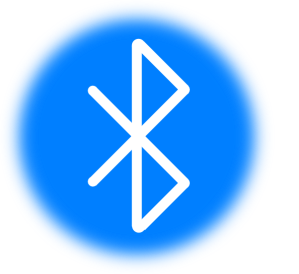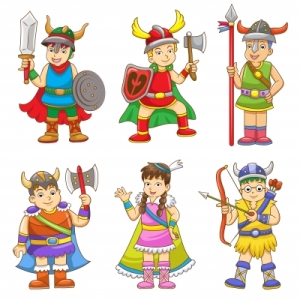
So I did it. Yeah yeah, it’s finished. It was painful, hilarious, testing, stressful, simple, complicated, disastrous and most importantly; fun!
Regardless of whether it goes on to be published or not, there’s a lot of lessons to take from the experience (some of them expected, some of them surprising).
It’s Easier Than I Thought
So when I started out on this journey, I didn’t know whether I’d actually be able to get to the end. I’ve started many a story before, and normally one of three things happens:
1. I didn’t have a large enough idea, and it turns into a short story / novella.
2. I have another idea half way through, and then switch all my attention to that one.
3. I lose interest / grow intimidated by my own idea, and give up.
The struggle is real. And yet, with this little nasty, I managed to keep going and finish it. I started it on the 5th of March, and it was finished by the 2nd of June. It sits at 102,508 words, so it needs work. But getting there was a lot easier than I had anticipated. How I got there was simple.

“It’s not rocket science, honestly”
Setting Targets Pushed Through My Procrastination
I started out small, forcing myself to write 500 words a day. Easy peasy, lemons are squeezy. Then, once my brain and fingers were on side, tricked by my awesome scheme into seeing how easy 500 words was, I upped the count to 700. ‘You call that a challenge’ they cried, drunk on word counts and punctuation.
I ended up banging out 1,000 words a day, averaging 1,150 words a day in April and May. I know this, because I made a spreadsheet that I could log my totals into every night. This seems geeky, I know. But hear me out. I’m a child of sandbox computer games, so my brain responds to simple stimuli like upgrades, xp, and stats. If I can develop this real world data to reflect the effort I’m putting into myself and one of my hobbies, it gives me personally, an extra level of satisfaction. Gone are the wasted days of thinking about wanting to write. In their place, a tangible, real-time record of every word I’ve written.
It might not be everyone’s flavour, but it certainly worked for me.

Nerd Alert
Write It, Warts and All
The only way I could realistically squeeze a thousand words into my day (taking me anywhere from 30-60 minutes) was to just write them out, knowing I’d be back at a later date to edit. Unrestricted word slamming, churning word-chunder onto the page without stopping to wipe it up. Groovy.
For the purists out there, I know this might sound like a nightmare. A friend of mine prefers to write the detail now, rather than know it will need to be returned to later. For me, this was too much of a start / stop approach, and I’d quickly be demotivated as the mammoth task facing me would seem like an overbearing mountain. Hence by doing it my way, each day felt like a tangible step in the right direction, even if I knew what I’d written might be dogshit.
Also, this gives you the chance to rant out key facts, feelings, scene setting or monologue and know it will be returned to and tidied up later.
Sure, if a single scene feels like it needs attention, or the desire to edit is so strong you can’t fight it, then there’s nothing to say you can’t do that. It’s flexible.
Just remember, a thousand words a day gets you to a novel in about three months. That’s decent. Then you’ve got three months to edit. At that pace, you could write 20 novels in your twenties alone!
It also helps break the story down into sections, instead of one long road. First draft done? OK. Now, on to draft two. Instead of stopping every few paces to check your laces are tied, you’re sprinting to the end and worrying about it then. Sure, you might have more blisters, and the laces will probably be frayed, but you got there. You did it.

“Wooo”
Fail to Prepare and Prepare to Fail
I read a post recently on the wonderful Terrible Minds (Chuck Wendig’s personal writing blog) about the need to plan your story. The post is actually by another writer named Rob Hart, and he uses the analogy of building a house when talking about constructing a story. In his own words:
“It was like if you’re building a house, but the blueprints are constantly getting changed, and the builders aren’t communicating, and suddenly there’s a toilet next to the fridge. And you have to figure out how to move it, but once you do, it screws with the plumbing lines… “ (read the original post here)
I can’t think of a more lovely way to put it; once you’ve set stuff up, moving characters, threads, plots, pivots, all of it can be disastrous if not thought about and juggled with sense and purpose. And both of these things come from a solid plan. Though it’s tempting to plan as you go, and write on the coat-tails of inspiration, you’ll hit trouble if you haven’t set out in advance, clearly, the threads and pathways your story will take.
When I started out writing the story, I had a brief idea, and a few characters in mind. I wrote these out in a notebook, then left them there. I then took a long train ride and pondered the greater story (with no writing) – my thinking being that I’d work through the gunk in the filter and get to the good stuff.
Then I slept on it, and thought over it some more. The gutsy stuff I’d come up with didn’t seem so necessary in the cold of the following morning. So I erased a few random details, and looked to string together the rest in a different way. Then again. And again.
I tried to explain the story to a friend, and realised it had no purpose, and no overall meaning. Ultimately, you should be able to sum up your story in one sentence. I went away again and pondered this, simplifying and removing and adding until I had it.
I ended up with a story that had a start, a middle, and an end. I planned this out by hand, then on my PC.
Finally, I was ready to start writing, and the rest took care of itself. It changed (a lot), but having a base, and an idea of what was going to happen, when, and why, meant I had the minerals to concoct and adapt. The elements were the story components, and once identified, it made this particular method of word alchemy that much easier. And crucially, the toilet never ended up in the kitchen!

There were other complications though…
90,000 Isn’t So Big
In fact, it’ll creep up on you in no time. I planned the story to fall into three clearly identified sections of 30,000 words each. Each of these sections was divided further into three 10,000 word portions. This really helped with the planning and staging, and mean’t I had clear signposts to measure my progress, and make sure I didn’t waffle on in certain parts.
In the end, this total disappeared into the rear-view mirror, and I know for sure I’ll need to cut it down once the editing begins.
Still, it’s nice to have too much and not enough.

“OK, no need to show off”
It Came to Life
It really did. I’d sleep and dream about the characters, and wake up in the middle of the night with great ideas. I’d scramble through my bedside table finding my pens and paper to jot down these ideas, only to wake in the morning and realise it didn’t fit, or that I’d already written it out like that.
The ideas grew, and the story started to tell me what was happening. Ideas came to me seemingly from nowhere, ideas that slotted in perfectly and tied up loose ends I didn’t realise I had.
Once the ball was rolling, and I was regularly checking in with my characters, everything just seemed to gather its own head of steam.

Once you get going, you won’t be able to stop
It’s Possible to Hate a Wordfile
By the end, I was dog tired, and completely and utterly ready to finish. It took more will power than at any other moment to finally finish it. I knew the ending, and knew exactly how I wanted it to end. So creativity wasn’t the issue. It was the effort. The effort of knowing that it needed finishing, even after all the energy and time I’d put into it. Like it was a spoiled child or something. I was just desperate to be able to say the words; I’ve finished. It’s done. It’s over.
The funny thing is, now it is over, I realise in reality it is actually only just beginning. Following the advice of Stephen King, it sits in a desk drawer at the moment, maturing and hopefully not stagnating and fermenting. My hope is I’ll open the draw in August and find a novel waiting for me that I can be proud of, and one I can work on through the next few months and finish.
I guess we’ll wait and see…

I’d love to hear about your experiences writing, and the struggles, stories, or surprises you have encountered. Please comment below.
Special thanks to Anamwong, Marco Torresin, Marin, Stockimages, surasakiStock, and tiverylucky @ FreeDigitalPhotos.net for use of their photos in this blog.
© Itchy Quill and ItchyQuill.WordPress.com, 2016














































